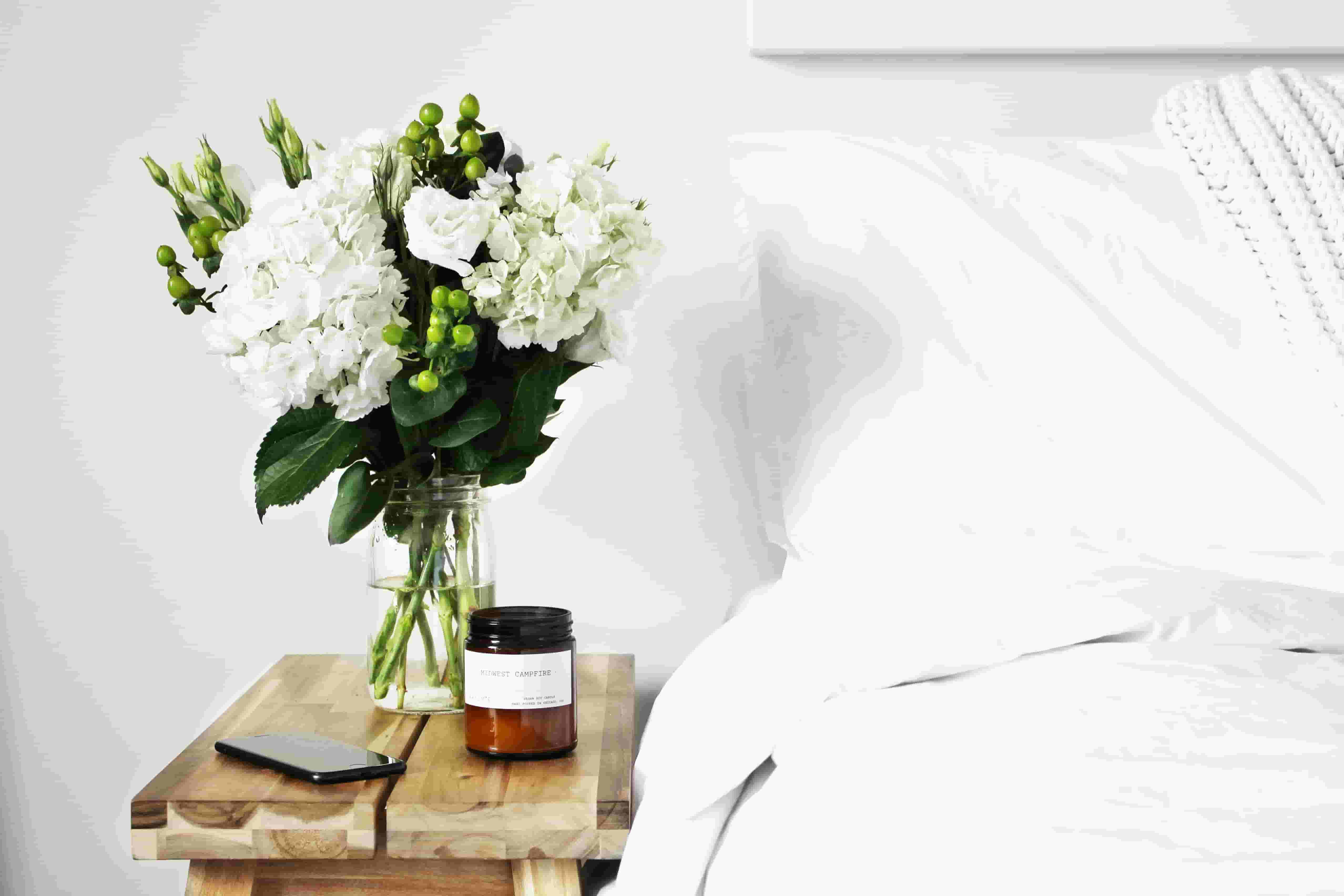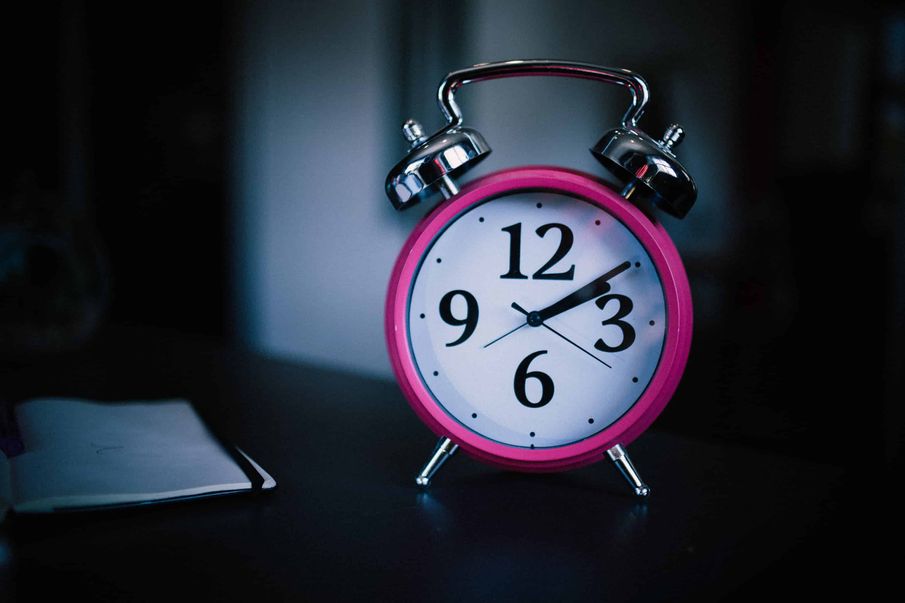Getting a good night’s rest can feel like a real struggle. New research shows as many as four in five autistic people struggle to sleep at night. We share tips to help you create a more restful sleeping environment
Sleep. We all need it - yet many of us struggle to get a full, restful night’s rest. According to the latest research released by the National Autistic Society and Happy Beds, four in five autistic people have trouble sleeping at night. The survey revealed on average, 68% of autistic people get just six hours of sleep (or less) each night, with 59% waking up during the night, and nearly half (48%) waking up ‘too soon’ in the morning.
Of the parents surveyed, 79% revealed that their autistic child(ren) get less than the recommended eight hours of sleep each night, while a further 82% reported their child had difficulty getting to sleep in the first place.
Unsurprisingly, not getting enough sleep can leave us feeling tired, grumpy, and struggling to concentrate. However, consistently experiencing sleepless nights can be bad for your health.
According to the NHS, regular poor sleep can put you at higher risk of heart disease, diabetes, obesity, and other serious medical conditions. Over time, it can also shorten your life expectancy.
While the amount of sleep we need varies from person to person, most of us need around eight hours of ‘good quality’ sleep in order to best function. Waking up and still feeling tired, or spending the day longing for a nap can both be signs that you aren’t getting enough sleep. Having an occasional night of poor quality sleep can feel bad when it happens, but it won’t harm your health long-term.

Why do we struggle to sleep?
According to research released by the National Autistic Society and Happy Beds, some of the most common causes of poor sleep for autistic people include:
- Anxiety (70%) - while there is no definitive research into how widely anxiety affects autistic people, smaller studies have reported up to 84% of autistic people experience anxiety. Across the entire population in England, it is estimated that around 8% of us meet the criteria to be diagnosed with a mixture of anxiety and depression.
- School or work worries (52%) - anxiety around school or work can create high levels of anxiety in our day-to-day lives. Often due to changes, sensory input, social anxiety, and difficulty understanding other’s emotions or behaviours, the National Autistic Society shares ways to help manage your anxiety - and how you can help children manage their anxiety too.
- Sensory issues (44%) - sensory issues can lead to feelings of overwhelm and, when persistent, can lead to a meltdown.
Other common causes respondents listed included TV or internet use, a lack of routine, medication, and diet.
Director of Centre for Autism at the National Autistic Society, Carol Povey, said:
“Sleep is incredibly important for everyone, but for the 700,000 Autistic people in the UK, getting a good night’s sleep can be particularly difficult – especially during times of uncertainty.
“Lockdown has brought huge changes to everyday life and people’s routines. This is particularly hard for autistic children and adults who can feel anxious and overwhelmed by unexpected changes.
“Because of this, many autistic people may find they have difficulty settling or winding down after a stressful day, waking up repeatedly during the night or might find their increased anxiety makes it really hard to relax and fall asleep. Adjusting to this new reality has been difficult for many.”
But what can we do to help ourselves get the best possible chance of a restful night’s sleep?

How to create a better sleep routine
Alter your environment
Your bedroom should be a place of peace and tranquillity. This is the space you can retreat to at the end of the day to relax and rest - yet all too often, we try to do other things in our bedrooms. Charging our phones, watching TV, scrolling on social media - these can all provide distractions that risk stimulating us and keeping us awake.
Switching off the TV and removing your phone charger from beside your bed can help to remove temptation before bed. Ensuring your room is dark, ideally 16-18°C, and distraction-free can help you to feel more relaxed and calm. Blackout blinds and bedding made of soft materials can both help to create a consistently dark and soothing environment.
Go tech-free before bedtime
Using electronics (such as our phones, TV, laptops, or even games consoles) to relax and unwind may be a common way to spend our evenings, but tech can have a surprising impact on our ability to sleep. Research has shown that the blue light admitted by screens affects our production of melatonin (the ‘sleep hormone’ that helps control when we sleep and wake up), making it harder for us to fall - and stay - asleep.
If you still want a way to relax and switch off before bed, reading could be the answer. According to a 2009 study by the University of Sussex, reading for just six minutes can help to reduce stress. While not quite going tech-free, switching out your bedtime scrolling in favour of listening to a podcast can provide a happy medium.
Optimise your bedding
While often expensive, weighted blankets can help many people with insomnia or anxiety to sleep. Thought to help promote calmness, while there is little evidence as to their success, many report anecdotal success with using weighted blankets, thanks to the secure feeling provided, as well as a reduction in tossing and turning.
Consider your diet
As nutritionist Melody explains to Nutritionist Resource, what we eat (and drink) during the day can also make it harder to get a good night’s sleep. “Drinking coffee in the afternoon or early evening may prevent you from falling asleep, and alcohol can also make it harder to get to sleep as it has a stimulatory effect on the brain.
“If you suffer from insomnia or wake in the night and feel unrefreshed in the mornings, you may have high cortisol levels, which has the effect of lowering the production of the growth hormone needed for cell repair. To help bring cortisol down, you need to keep a stable blood-sugar level, which means avoiding sugar and an excess of refined carbohydrates. Even too much fruit can be a bad thing.”
If you’re worried your diet may be affecting your sleep, decreasing the number of refined carbs (such as white bread, rice, or pasta), fruit juice, sugar (chocolate, fizzy drinks) and caffeine (tea, coffee, fizzy drinks) can all have a positive effect. If you’re unsure of what foods can help promote a better night’s sleep, check out these recommendations on healthy eats for a great night’s sleep.
Try relaxation techniques
Having a warm bath before bed can not only help you to fall asleep more quickly but can also increase the quality, too.
Practising mindfulness each day can help to reduce overall feelings of stress and anxiety, recognise negative thoughts or habits that we may have developed, as well as to reduce feelings of tension, anger, and even depression. If you’re unsure of where to start, try these simple tips from Counselling Directory.
If you struggle to sleep because of feelings of overwhelm, spending some quality alone time by yourself each evening can help. Sitting down with a warm drink and a book, going for a walk alone, or having a bath can all be ways to get a few minutes to yourself.


Comments